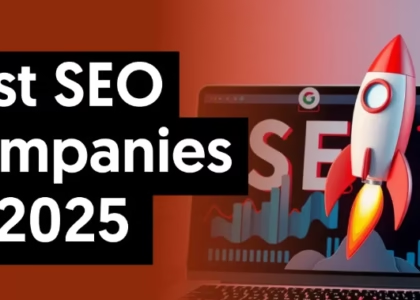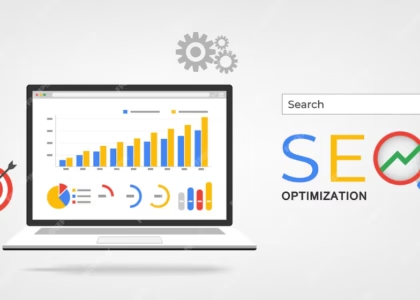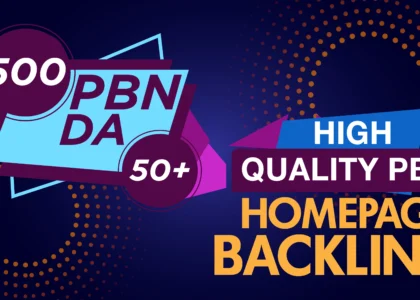Google Rank Let’s face it—if your website doesn’t show up on the first page of Google, it might as well be invisible. Google Rank determines how visible your content is in search results, and if you’re aiming to grow online, understanding how it works isn’t just useful—it’s essential.
What Is Google Rank?
Definition and Purpose
Google Rank refers to the position your webpage holds on the Google Search Engine Results Page (SERP) for a given keyword or query. It’s a numerical spot, typically ranging from 1 (top of page one) to wherever you land (page two and beyond). Ranking higher means more clicks, more traffic, and ultimately, more conversions.
How It Affects Visibility Online
It’s simple: higher rankings mean more eyeballs on your site. Around 75% of users never scroll past the first page of search results. So, if you’re on page two? That’s digital no man’s land.
The Evolution of Google’s Algorithm
From PageRank to AI-Based Algorithms
Back in the day, Google used a system called PageRank, which measured the number and quality of links to a page. Today? It’s far more complex. Algorithms like BERT and RankBrain use AI to understand user intent and context, not just keywords.
Major Updates That Changed the Game
- Panda (2011): Penalized low-quality content.
- Penguin (2012): Targeted spammy link practices.
- Hummingbird (2013): Focused on semantic search and intent.
- Mobilegeddon (2015): Prioritized mobile-friendly websites.
- BERT (2019): Enhanced understanding of natural language queries.
Each update reshaped how sites rank and forced SEOs to evolve.
Why Google Rank Matters for SEO
The Link Between Rank and Organic Traffic
The higher your rank, the more organic traffic you’ll receive. Studies show that the top result in Google gets about 28.5% of all clicks. By the second result, it’s down to 15%, and it just keeps dropping.
How Ranking Impacts Click-Through Rates (CTR)
People trust Google. If you’re ranked higher, you’re perceived as more credible. It’s not just about showing up—it’s about showing up where it counts.
Key Factors That Influence Google Rank
High-Quality Content
Content is king, right? Google loves valuable, unique, and well-structured content that satisfies search intent. Think comprehensive guides, how-to articles, and content that answers real questions.
Backlinks and Domain Authority
When other sites link to yours, Google sees it as a vote of confidence. But not all backlinks are equal. Links from authoritative, relevant websites carry more weight than random blogs or forums.
Mobile-Friendliness and Page Speed
More than half of searches come from mobile. If your site isn’t mobile-optimized or it takes forever to load, users bounce—and Google notices.
User Experience and Dwell Time
Good UX = better rankings. A well-designed site that’s easy to navigate keeps users engaged. Google tracks how long users stay on your site (dwell time) and uses that to determine value.
Keyword Optimization and Search Intent
Yes, keywords still matter—but it’s all about matching what people are actually looking for. Instead of stuffing keywords, think: “What does my user want?”
How Google Measures Content Quality
E-E-A-T: Experience, Expertise, Authoritativeness, Trustworthiness
If you’re publishing content, especially in niches like health or finance, Google wants to know you know your stuff. Showcase credentials, cite sources, and build trust with your readers.
Content Freshness and Relevance
Google favors updated, relevant content—especially for topics that evolve (like tech, news, or SEO). A regularly updated blog signals that your site is active and authoritative.
The Role of Technical SEO in Ranking
Website Architecture and Internal Linking
A clean, logical structure helps both users and crawlers navigate your site. Internal links distribute link equity and guide Google to your most important pages.
Indexing and Crawlability
If Google can’t crawl or index your site properly, it won’t rank—simple as that. Fixing broken links, robots.txt issues, and XML sitemaps is crucial.
Secure Website (HTTPS)
Security is a ranking factor. If your site isn’t on HTTPS, Google may flag it as unsafe. That’s a trust killer.
Understanding Search Intent and Ranking for the Right Keywords
Navigational, Informational, and Transactional Intent
Google tries to guess why someone is searching. Are they looking for info? Want to buy something? Just browsing? Match your content to the intent behind the search.
Long-Tail Keywords vs. Short-Tail Keywords
Long-tail keywords (e.g., “best hiking boots for wide feet”) have lower competition and higher conversion. Short-tail? Super competitive. Choose wisely.
How Backlinks Affect Your Google Rank
What Makes a Good Backlink?
- Relevance
- Authority
- Natural anchor text
- Placement in content (not footers or sidebars)
A backlink from Forbes or Moz? Gold. A backlink from a spammy directory? Could hurt you.
Toxic Links and Penalties
Google isn’t fooled by shady practices. Spammy link schemes can trigger manual penalties or algorithmic downgrades. Always audit your backlinks.
Google Rank Tracking Tools
Top Free and Paid Rank Trackers
- Google Search Console (free)
- Ahrefs
- SEMrush
- Moz Pro
- Ubersuggest
These tools help you monitor your keyword positions and identify growth opportunities.
How to Monitor Progress Over Time
Tracking weekly or monthly rankings allows you to spot trends, troubleshoot drops, and double down on what’s working.
Local SEO and Google Rankings
Importance of Google My Business
If you’re a local business, claiming and optimizing your Google Business Profile is a game-changer. It boosts visibility in Local Pack results.
Local Citations and Reviews
Consistency in NAP (Name, Address, Phone number) across local directories and positive reviews can help you climb local rankings.
Voice Search and Its Impact on Ranking
Optimizing for Featured Snippets
Voice assistants often read out the featured snippet in response to a query. Writing concise, answer-driven content can help you land that spot.
Conversational Keywords and Natural Language
People speak differently than they type. Optimizing for natural phrases like “how do I fix a leaky faucet?” is crucial for voice SEO.
How to Improve Google Ranking Step by Step
On-Page SEO Checklist
- Optimize title tags and meta descriptions
- Use H1-H4 tags properly
- Include internal and external links
- Optimize images with ALT tags
- Ensure mobile responsiveness
Off-Page SEO Checklist
- Build quality backlinks
- Engage on social media
- Get listed in directories
- Encourage reviews and testimonials
Content Strategy and Consistency
Blog regularly. Answer your audience’s questions. Repurpose content. Consistency builds authority, and Google loves that.
Common Mistakes That Hurt Your Google Rank
Keyword Stuffing
Don’t cram keywords. It’s outdated and can trigger penalties. Write naturally.
Duplicate Content
Google hates copy-paste jobs. Every page should have unique, value-driven content.
Poor Site Structure
If users (or Google) can’t find stuff easily on your site, you’re in trouble. Clean up menus, add breadcrumbs, and use logical categories.
Case Studies: Websites That Improved Their Google Rank
- Healthline: Focused on E-A-T, became a go-to for medical info.
- Backlinko: Built skyscraper content and earned thousands of backlinks.
- Ahrefs Blog: Optimized around search intent and dominated niche queries.
The common thread? Value, trust, and strategy.
Future of Google Ranking: Trends to Watch
AI, Machine Learning, and Predictive Search
Google is getting smarter. Search is becoming more intuitive, and ranking will depend more on context, engagement, and satisfaction.
Google’s SGE (Search Generative Experience)
Google is testing AI-driven search results that summarize content and provide answers directly in the SERP. That means your content needs to be even more helpful and scannable.
Conclusion
Ranking on Google isn’t just about keywords or backlinks anymore. It’s about understanding your audience, providing real value, and keeping up with ever-changing algorithms. The good news? If you stay consistent, play by the rules, and prioritize users, Google will reward you.
FAQs
1. How long does it take to rank on Google?
It depends on your niche, competition, and effort. On average, it can take 3–6 months to see noticeable changes.
2. Can you pay Google to rank higher?
Nope. You can pay for ads (Google Ads), but organic ranking must be earned through SEO.
3. What’s the fastest way to boost rankings?
Focus on content quality, backlink building, and fixing technical SEO issues.
4. Is domain age important for ranking?
Aged domains may have an edge, but content and backlinks matter more.
5. How do I recover from a ranking drop?
Audit your site, identify algorithm changes, fix errors, and improve your content. Google Search Console is your best friend here.






